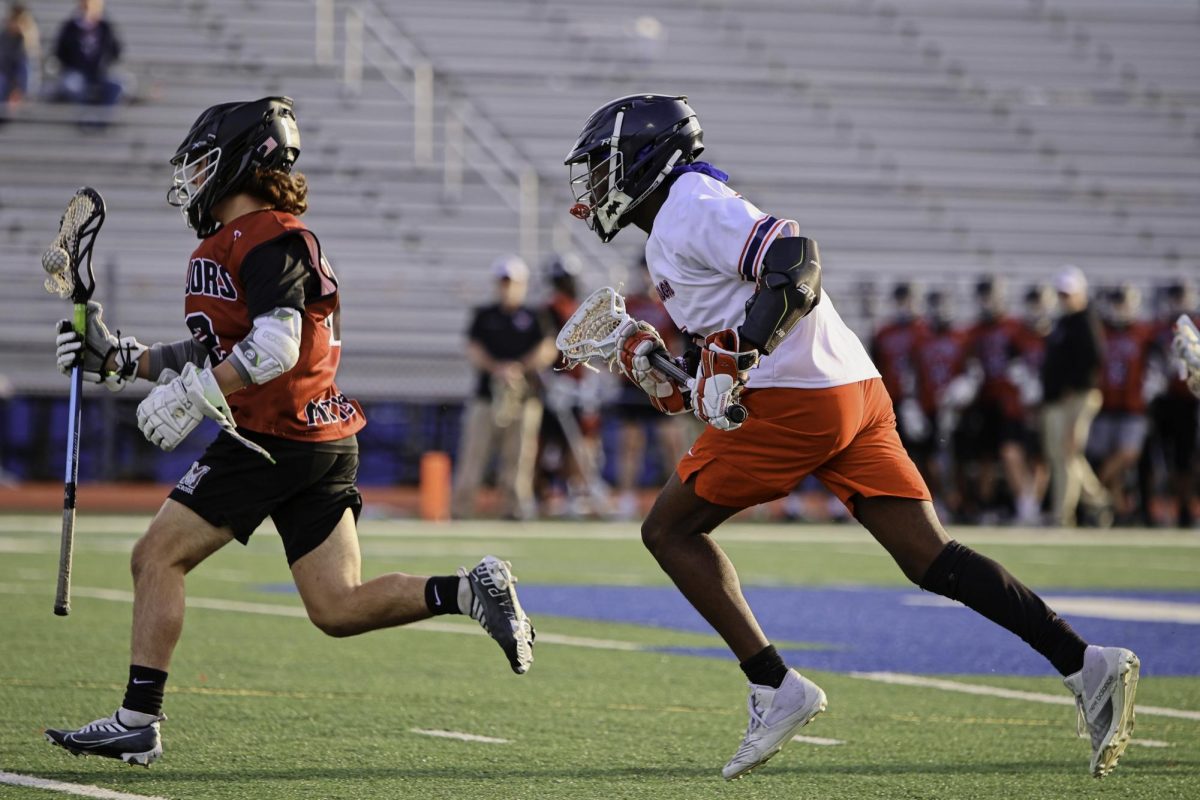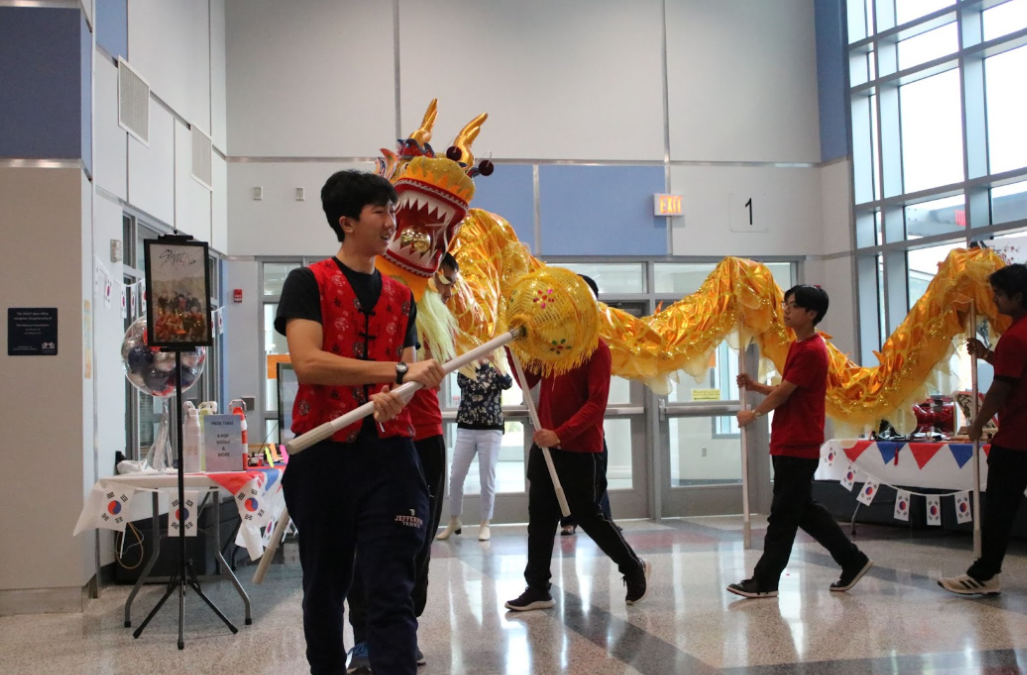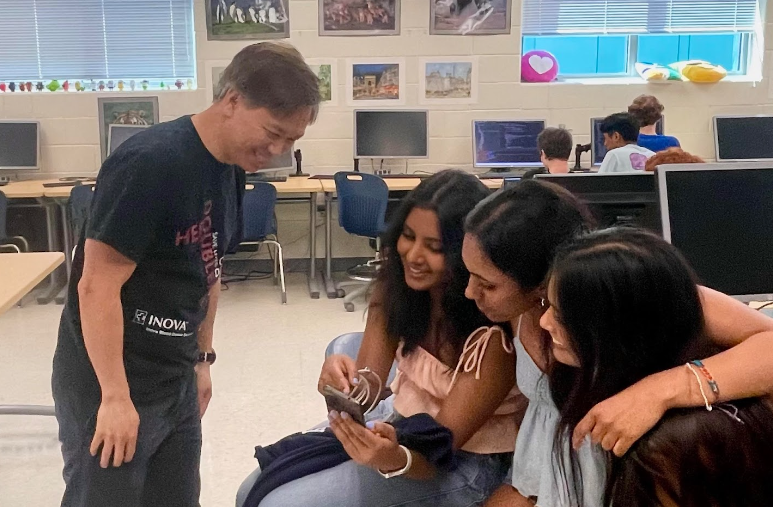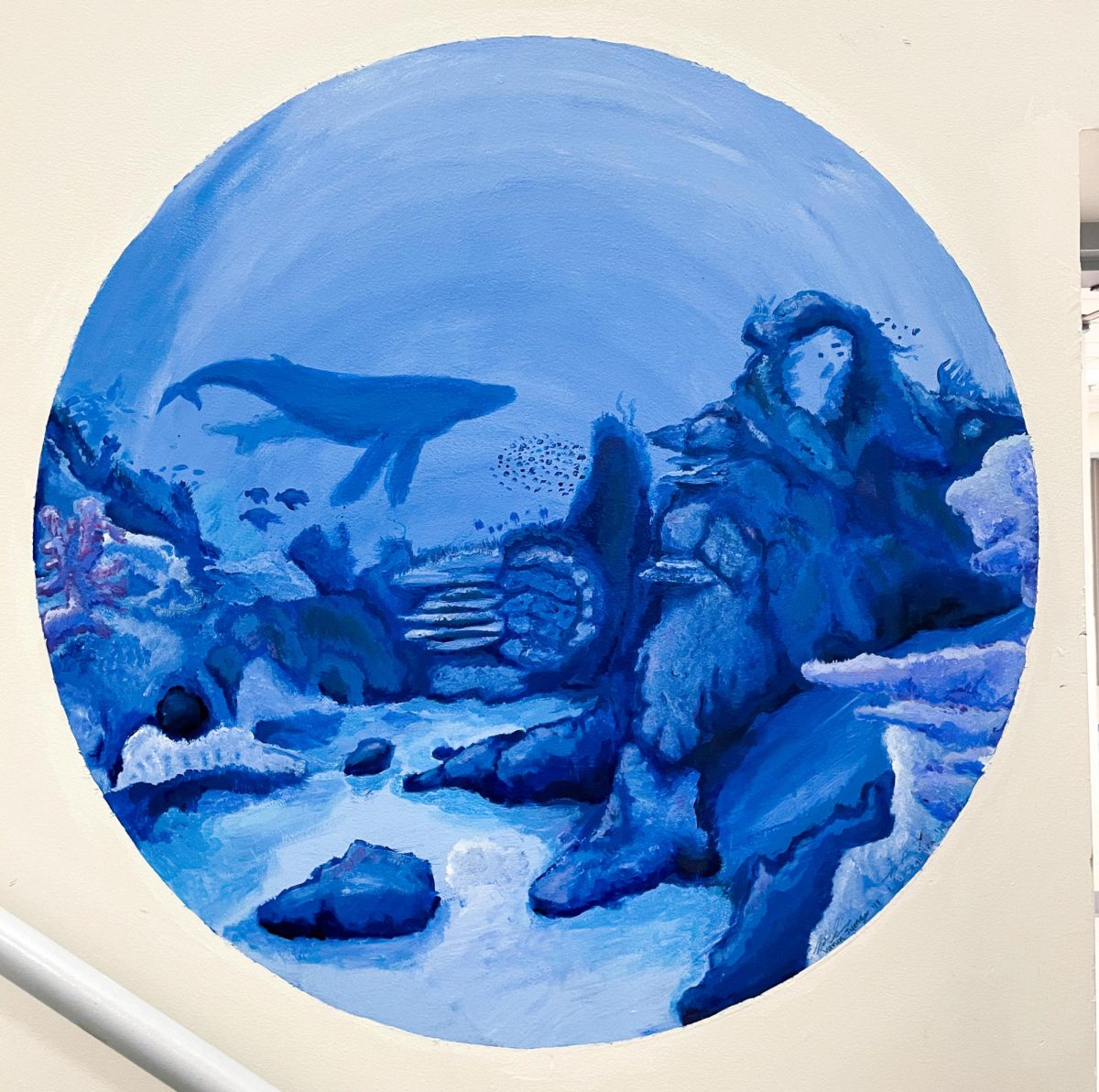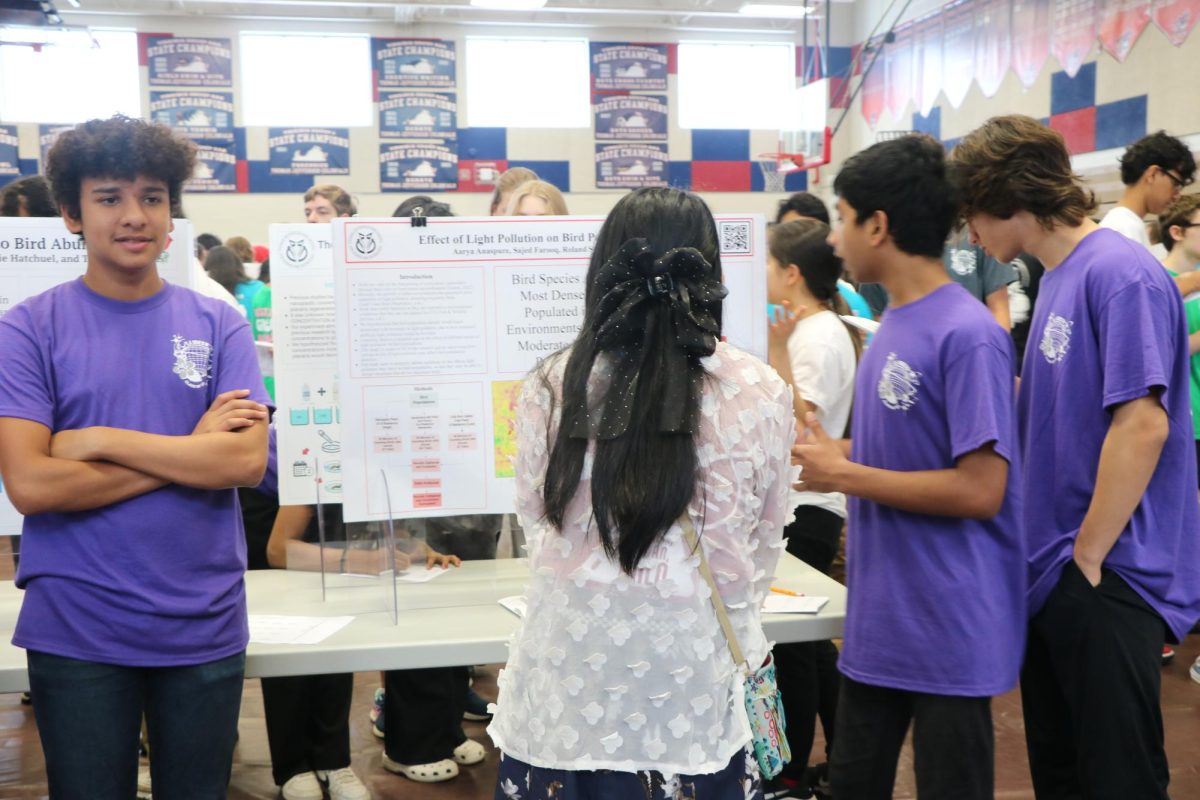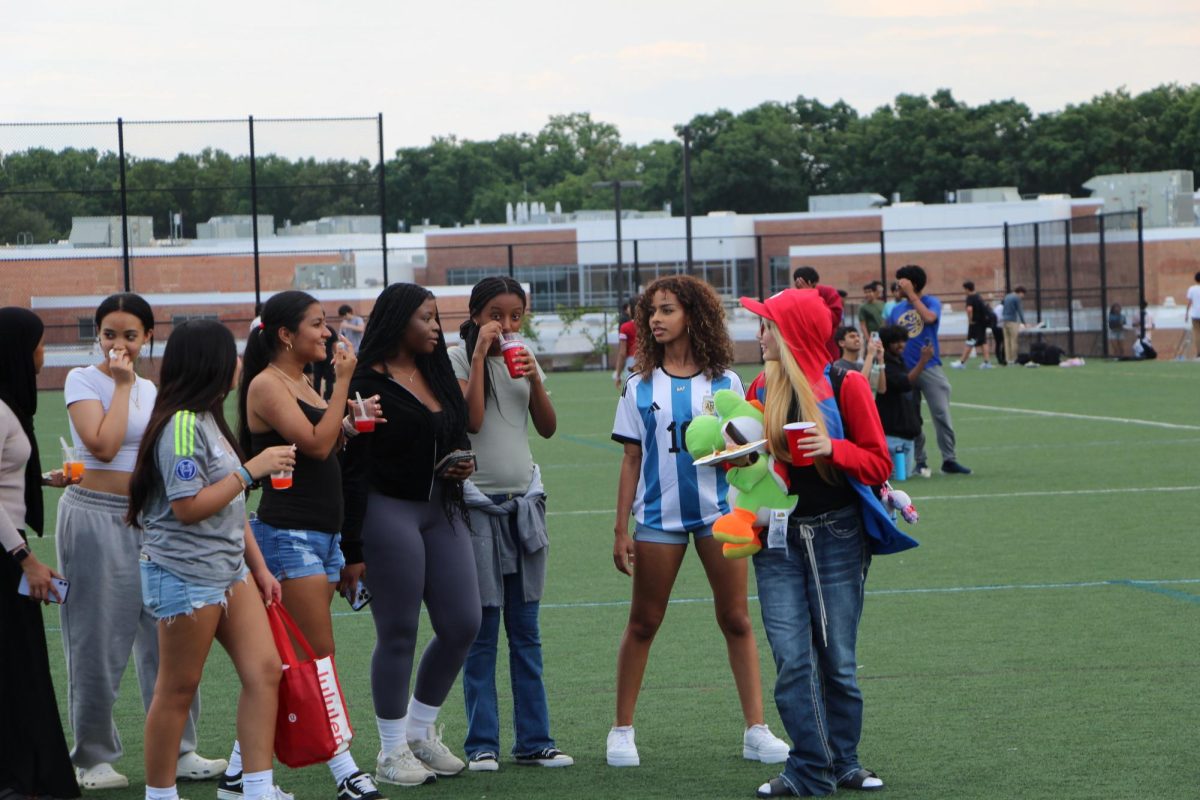Ramadan at Jefferson
![On Friday, April 12, Jefferson’s Muslim Student Association (MSA) and the Parent Teacher Student Association’s (PTSA) Diversity Committee hosted an Eid-Al-Fitr celebration after school. “I think especially at TJ I have to emphasize [the community] because I feel like at other schools there’s less of an open mind. There’s this environment of Muslim students as well, and so here it’s so calming and kind,” sophomore Palatin Shaaker said.](https://www.tjtoday.org/wp-content/uploads/2024/05/IMG_0420.jpg)
![The celebration of Eid al-Fitr hosted at Jefferson included an assortment of traditional foods and dishes to mark the end of Ramadan. “It [Eid] is like the best feeling ever, but it feels really awkward eating at first. You have to celebrate with your family, and you get to go out and its a really exciting three days,” junior Olaa Elgamri said.](https://www.tjtoday.org/wp-content/uploads/2024/05/IMG_0423.jpg)
“It’s not that hard, I’ve got experience, I’ve been doing it since I was 12 years old,” North Carolina State University’s Mohamed Diarra said in an interview with CBS. “I’ve played sports all my life and playing with no food in my stomach is just a mindset.”
As the Wolfpack made it to the Final Four of the NCAA college basketball tournament, the spotlight was often on Diarra as he observed Ramadan despite the demands of his sport. While Diarra serves as a national example of the dedication of many Muslim athletes and students, here at Jefferson, our Muslim students live out the same balance.
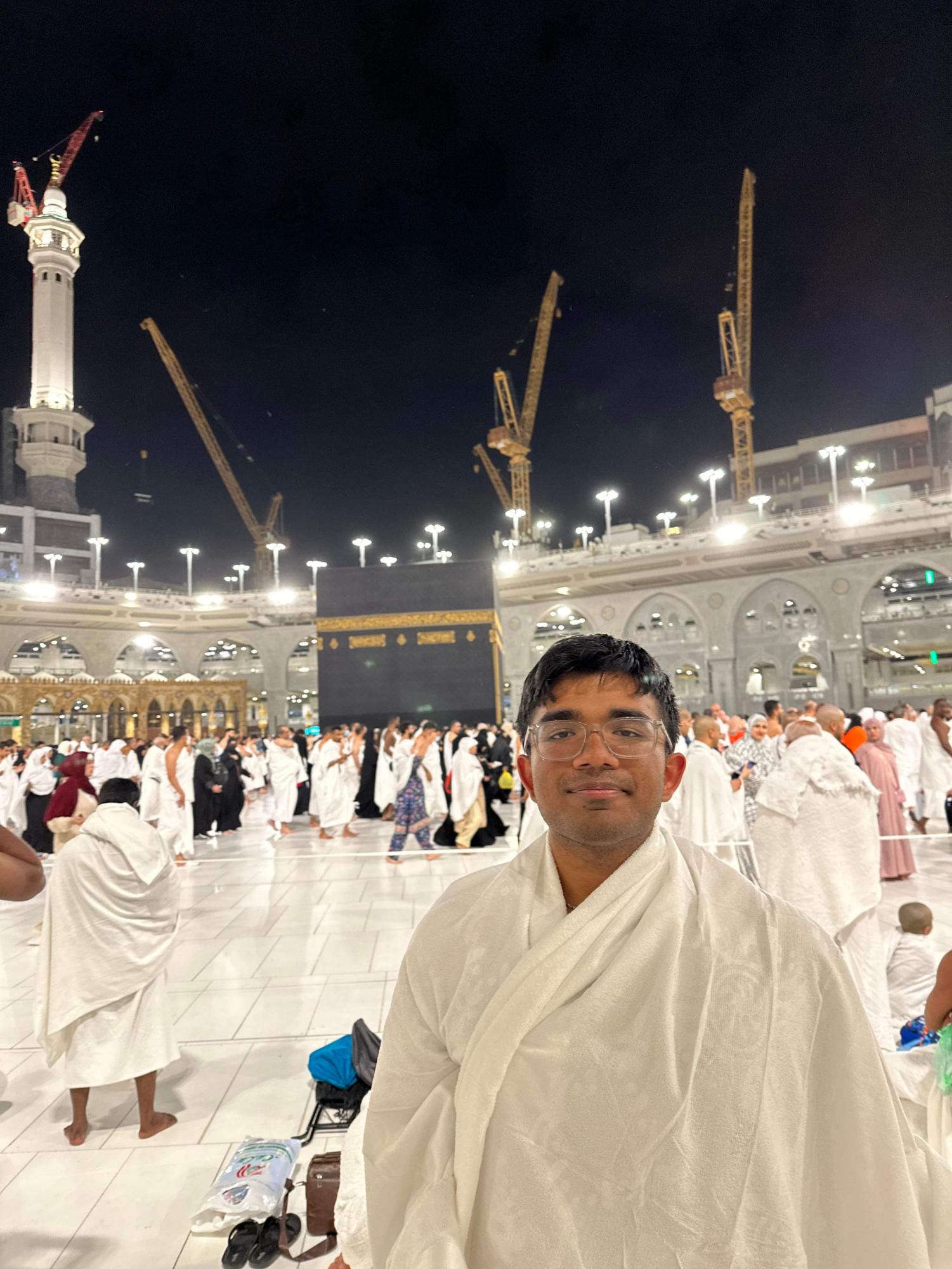
Ramadan is a month-long Muslim holiday that is a time of spirituality and peace in the Islamic calendar. A crucial part of this celebration is abstaining from food and drink from sunrise to sunset, which represents empathy for those less fortunate and prioritizes faith over individual wants. For Jefferson students observing the holiday, Ramadan serves as a way to practice dedication to their faith amongst the demands of school and family duties.
“I don’t feel hungry or thirsty or anything at all. It’s honestly the most relaxing experience,” junior Olaa Elgamri said. “In our lives and our religion, we say that the devils are gone and everything is supposed to be sinless. Everything is chill and peaceful and that’s what it feels like. That’s how everything actually is.”
As Muslim students continue to balance Ramadan with the stresses of school, acknowledgment from teachers that Ramadan is being observed goes a long way.
“I think, from a student’s point of view, it’s helpful when your teachers are aware that you’re fasting,” senior Zarif Azher said. “Even if they don’t actively give you an advantage, they’re just aware, so they know to be a little bit more mindful about what you might be going through.”
Being weaker throughout the day also results in students having to decide the magnitude to which the activity matters. If they decide to continue a sport, for example, most students recognize that they participate of their own volition.
“I am weaker physically, and it’s hard to admit that, especially when I was in a competitive sport where people had to participate if they wanted to play in the game,” junior Zahra Hashemi said. “Part of [this] is giving up things that weren’t necessary. I didn’t have to play all the time. I just did it because it was a selfish want.”
Beyond fasting during Ramadan, individuals also pray regularly, often five times throughout the day. Jefferson accommodated this by having a prayer room located in room 104, though in previous years it was more difficult to access.
“Last year, there was no organized prayer room, and the one room that was designated to sometimes be used was often locked and not accessible,” Azher said. “This year they made an effort to make the prayer room open, and I can definitely see that and I appreciate it. I know that other Muslim students appreciate it as well.”
Some students settle to pray in other areas of the school, as long as they can find an area that is quiet and separated.
“Even during school hours, I go to a certain area of the school where I get to pray in silence. It’s just peaceful to me,” Elgamri said. “I believe in God being in nature, so I try to get outside as much as I can. I do my homework outside if I can. Being Muslim is important to me.”
![Seated on the left, sophomore Arbar Sharif participates in the Eid al-Fitr celebration in Nobel Commons. “Usually [during Eid], my family goes to a bunch of parties. You just have a good time, go around places and try to enjoy the time because it only happens twice a year. Its pretty important,” Sharif said.](https://www.tjtoday.org/wp-content/uploads/2024/05/IMG_0412.jpg)
Community and support from friends is something that helps students get through fasting during Ramadan, regardless of if those friends observe Ramadan themselves or not. By abstaining from food and drink the whole day, Ramadan is a month for Muslims to practice gratitude and a time of spirituality by putting aside selfish wants.
“You empathize with people [who] don’t have enough food regularly and you are able to see the temporariness of it all,” Hashemi said. “You’re supposed to stop doing things that are seen as selfish or bad habits and stuff like that. You also feel closer spiritually just because you’re doing this thing for a being that’s important to you.”
Hanging out with friends who are also fasting can make the process easier.
“During spring break, I got a bunch of my friends and we fasted the entire day. It was fun because [when] you’re doing [it] with a group it’s more enjoyable,” Elgamri said. “Something that you should experience at least once in your life is to eat or hang out with one of your Muslim friends. I feel like everyone has [to] experience[this] at least once in their life.”
Ramadan also stresses the importance of family and serves as a way for community members to come together whether through prayer or other festivities.
“My mom and I go a little crazy and start decorating. We made a mosque area in our house where on weekends we pray all five prayers together,” Elgamri said. “We have a countdown for Eid. It’s cute.”
Eid al-Fitr marks the end of the month-long fast during Ramadan, typically lasting for three days. It includes a community-wide prayer in the morning followed by a large meal with friends and family.
“One thing we always have is bread. In Sudan we call it ‘fatira’ and you stuff it with either cheese or meat or whatever you want. We also have something called ‘lugma,’ which is like a yogurt with sauce around it. It’s really good,” Elgamri said. “It’s always different but we never eat outside food during Ramadan. [It’s] always home-cooked.”
The 2023-2024 calendar year marked the first time students were off, allowing them to celebrate without missing school or falling behind on assignments.
“In past years, there’s a test or some sort of assignment to be working on during Eid when you’d normally be gathered with your family outside of school and going to prayer or going to eat together,” Azher said. “This year FCPS acknowledged that Eid is something that people need time off for. It’s been great because now I know I can celebrate with my family kind of without as many obstacles.”
Ramadan takes a toll on student athletic performance due to the tough conditions of fasting and the physical demands of their respective sports, especially with the warmer temperatures of spring.
“Somedays it’s really hot, no water, no food. It’s just really draining by the time I get to practice. [There’s] a lot of cardio so I have to be careful about dehydration. I’ve had to ask if I could take a breather, and I just have to be extra weary during this time,” sophomore Arbar Sharif said. “I do try to participate to my fullest capacity. I don’t want Ramadan to impact how I want to play and work.”
Not only does Ramadan impact physical performance, but it also influences athletic attitude during the season.
“My mindset has been a lot less athletic, and it’s been more peaceful and more religious-oriented because it is a whole religious month,” sophomore Palatin Shaaker said. “Going four weeks without really thinking about sports or really doing practice because of fasting, it takes strength, but it also takes your mindset a little bit away from the game.”
Alongside their other duties, the athletic trainers help during Ramadan by helping communicate with coaches and to make sure student athletes are accommodated.
“We always keep it on our calendar so that we’re aware of when it’s coming. In the past, we have emailed all of our families just to let them know that we’re here and that we can keep food for when sunset is, that we’ll keep an eye on that time. So if there are athletes on the bench, in a practice or a game, we can go over and make sure that they get fed at sundown and hydrated,” athletic trainer Dr. Heather Murphy said.
The athletic trainers aim to help students in whatever capacity they can while respecting the religious beliefs and boundaries set by the players themselves.
“Through all the years that I’ve been here, each athlete takes Ramadan personally and in their own way,” Murphy said. “Some will offset it and do another 40 days a different time. Some don’t want to be tempted by anything. Some would suck on ice cubes and then spit or like rinse their mouth out with cold water, so you just have to meet everybody individually where they are and see what options they want.”
In addition to communicating with coaches, athletic trainers specifically help students with cramping or personalized nutritional plans.
“If we notice on an individual basis that some athletes are struggling with cramping or just not feeling well, we can set up an individualized plan where we go over things that they should eat and drink very last at breakfast or just before sunrise,” Murphy said.

Additionally, the increase in cultural awareness also plays a growing role in how student athletes are able to balance Ramadan with their sport.
“When sundown hits at 7:30 p.m., come off the field and eat your food. Sometimes in the past, they haven’t wanted to draw attention to it, or they want to wait, [or] they don’t want to come out of the game. We try to break the stigma of eating during a game and making sure that they get what’s best for them and the team,” Murphy said.
It’s important for both athletes and trainers to be mindful of the dangers of dehydration and fatigue accelerated by fasting from sunrise to sunset.
“There was an incident where we just couldn’t hydrate them [an athlete] properly during a football game, and they were cramping so much that they needed to go to hospital for an IV,” Murphy said. “Going through that experience already, I don’t want any of my athletes to go through that, so we really make sure that we look out for them so that no one else has to go to the hospital.”
While the athletic trainers play a large role in shaping the season for students who are fasting, teammates and coaches also help support Muslim students.
“The coaches are really accommodating, and they understand. It is a sport though, so of course we want to get back in the game, but a lot of people are open-minded and really great with having a bigger worldview than just what they’re used to, and they are really accommodating for that,” Shaaker said.
In past years, there was less diversity amongst the sports teams; however now, there has been a shift in the number of students who do observe Ramadan which helps foster more awareness.
“I think now there’s definitely more of an environment here for it that’s more inclusive. I think it makes it easier for the athletes that are observing Ramadan that they’re not the only one anymore,” Murphy said.



